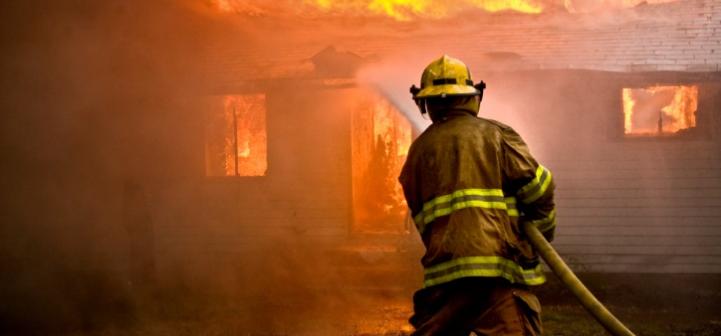
If you think your household finances are invulnerable to disaster, think again. Just one flood, fire, earthquake or tornado can wipe out a lifetime of savings. This year, make a resolution to secure your finances from unexpected events of nature. Below are five steps everyone can and should take to protect their home and finances.
- Budget Your Finances Now, to Minimize Damage Later
- Creating a Portable File of Important Documents
- Disaster and Financial Planning: a Guide to Disaster Preparedness (Red Cross & AICPA & NEFE)
- Emergency Financial First Aid Kit
- Family Disaster Plan
- Grab and Go Box
- Home Insurance
- Legally Secure Your Financial Future: Organize Your Important Papers
- Legally Secure Your Financial Future: Record of Important Papers
- Legally Secure Your Financial Future: Home Inventory
- National Flood Insurance Program
- Personal Disaster Preparedness Guide
Get the Right Insurance
Review your insurance policies and find out what they do and do not cover. Learn the difference between replacement cost coverage versus standard coverage, which only pays the actual cash value of insured property. Be sure that you have enough insurance to cover recent home renovations or improvements, and consider other policies such as earthquake insurance. Know that most homeowners insurance polices do not cover flood damage, so be sure to consider flood insurance for both your structure and its contents. Learn more by visiting www.Fema.gov, www.FloodSmart.gov and www.iii.org.
Inventory Your Household Possessions
For insurance purposes, be sure to keep a written and visual (i.e., videotaped or photographed) record of all major household items and valuables, even those stored in basements, attics or garages. Create files that include serial numbers and store receipts for major appliances and electronics. Have jewelry and artwork appraised. These documents are critically important when filing insurance claims. For help in conducting a home inventory, visit www.knowyourstuff.org or www.iii.org.
Protect Important Financial Documents
Store copies of irreplaceable financial and family documents in a safe place, preferably one that is protected from both fire and water. Documents include automobile titles, tax records, stock and bond certificates, deeds, wills, trust agreements, birth and marriage certificates, photos, passports and insurance policies. Keep originals in a rented safe deposit box. And don’t forget the household inventory file!
Keep “Emergency Fund” Cash or Savings Account
In case of an emergency or sudden evacuation, be sure to keep enough cash or traveler’s checks in a safe place; one that can be quickly accessed. ATM’s may not be available in the event of a disaster. Also, consider opening up an emergency savings account or designate a credit card exclusively for emergency use.
Safeguard Your Home and Property
Take steps to minimize potential damage to your home. Install smoke detectors on every floor. Consider hurricane shutters for windows or store large sheets of plywood in the event of high winds. For homes in earthquake-prone areas, anchor large objects that could topple and cause damage, such as television sets, china cabinets, bookcases and hot water heaters. Reinforce roof and foundation moorings in case of tornadoes or hurricanes. Remove dry brush to help prevent wildfires.
